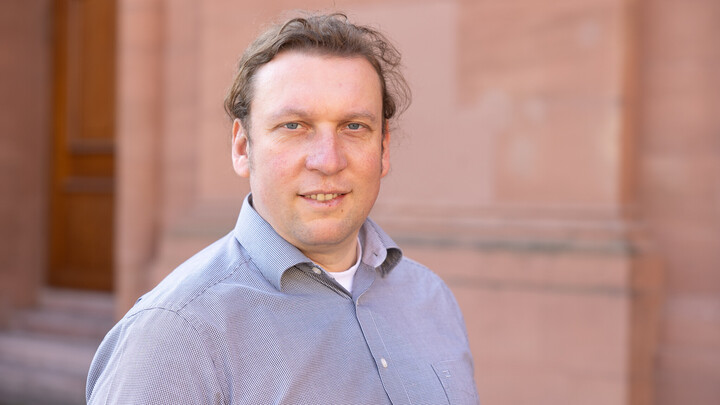InES – Software for the Future
A system to speed up diagnosis and treatment for tumor patients. Self-driving vehicles to improve hospital logistics. These are the kinds of projects that the Institute for Enterprise Systems (InES) at the University of Mannheim works on — with a particular focus on AI research.

The Institute for Enterprise Systems (InES) began in 2011 as the “Industry On Campus Project,” with the goal of translating research findings and developments into real-world applications. The institute takes an interdisciplinary approach in its work. Researchers from several of the University of Mannheim’s schools work with other German and international universities and industry partners. The InES received 1.5 million euros in start-up funding from the Baden-Württemberg Ministry of Science, Research, and the Arts. Today, all InES projects are either industry-funded research commissions or collaborative research projects with full or part public funding for all partners.
One example is the research campus Mannheim Molecular Intervention Environment, M²OLIE for short: a one-stop shop for developing patient-centric, time-optimized infrastructure for innovative tumor therapies based on molecular intervention. M²OLIE is one of nine research projects funded by the Federal Ministry of Education and Research as part of the initiative Research Campus — Public–Private Partnership for Innovation. It has been awarded ten million euros of funding. Aside from the InES and other academic institutions, the project partners include Siemens Healthineers, Zeiss, and mint medical. The InES team are working on AI-based data analysis and developing patient-centric applications to improve processes, such as the provision of patient information in electronic form.

The projects are led by nine professors from the University of Mannheim who are associated with InES. In addition, some 30 doctoral students work at the InES. Doing their doctorate at the InES gives them a springboard into industry. “Our colleagues appreciate being able to freely conduct research during their doctorate, while also making contacts in industry and often finding a company where they can get their career off to a good start afterwards,” explained Dr. Christian Bartel, Managing Director of the InES and head of the AI Systems Engineering research group. Or else they might found their own company — like Julian Kissel, who completed a master’s in business informatics at Mannheim. While working on his master’s thesis at the InES, he developed an AI voice assistance technology. He is now the managing director and founder of Aliru, a company with 26 employees whose AI-based voice assistant can help sales teams to access all relevant information quickly and effectively in their client system.
Since 2016, a total of five companies have been spun off from the InES. “The InES strengthens the regional economy. In part through spinoffs, but above all through the projects themselves,” explained Professor Armin Heinzl, the InES’s founding director. “Around 50% of companies involved in the projects are based in the Rhine–Neckar Region. We work closely with the City of Mannheim and the local business development agency, and receive public funding. We also give something back to the university, since the project work is incorporated into teaching.” For instance, master’s students can take part in a European team project with Babeș-Bolyai University in Cluj-Napoca, Romania, one of Eastern Europe’s leading centers for information science. Mannheim students work with Romanian students on specific issues from ongoing projects — spending one week in Romania and one week in Mannheim, and collaborating remotely the rest of the time.
The recently launched project MediCar 4.0 also plans to involve students. Developing low-floor electric vehicles for hospitals is a flagship national e-mobility project by the Federal Ministry for Economic Affairs and Climate Action, which has allocated 4.5 million euros of funding. “The goal is to improve hospital logistics. That includes not just transporting medical products like lab samples, but also things like laundry and catering. At the moment, that’s usually being done by workers who could be more usefully employed in understaffed areas like patient care,” explained Dr. Bartelt, who is leading the project. The InES’s contribution focuses on two areas: first, the functional safety of self-driving vehicles around people; second, optimized route planning for a whole fleet of autonomous vehicles.
The project is one example among many of how the InES is applying theory to practice and, in a broad sense, helping to improve society. “At the end of the project, there’s always a concrete solution or demonstrator, so that the result can be evaluated and refined,” said Dr. Bartelt. AI plays a key role in most of the InES’s software development projects, and that role has grown steadily over the years. “We expect that AI systems will transform most areas of our society in the coming years — and our researchers are helping to shape this exciting development.”
Text: Katja Bauer/
